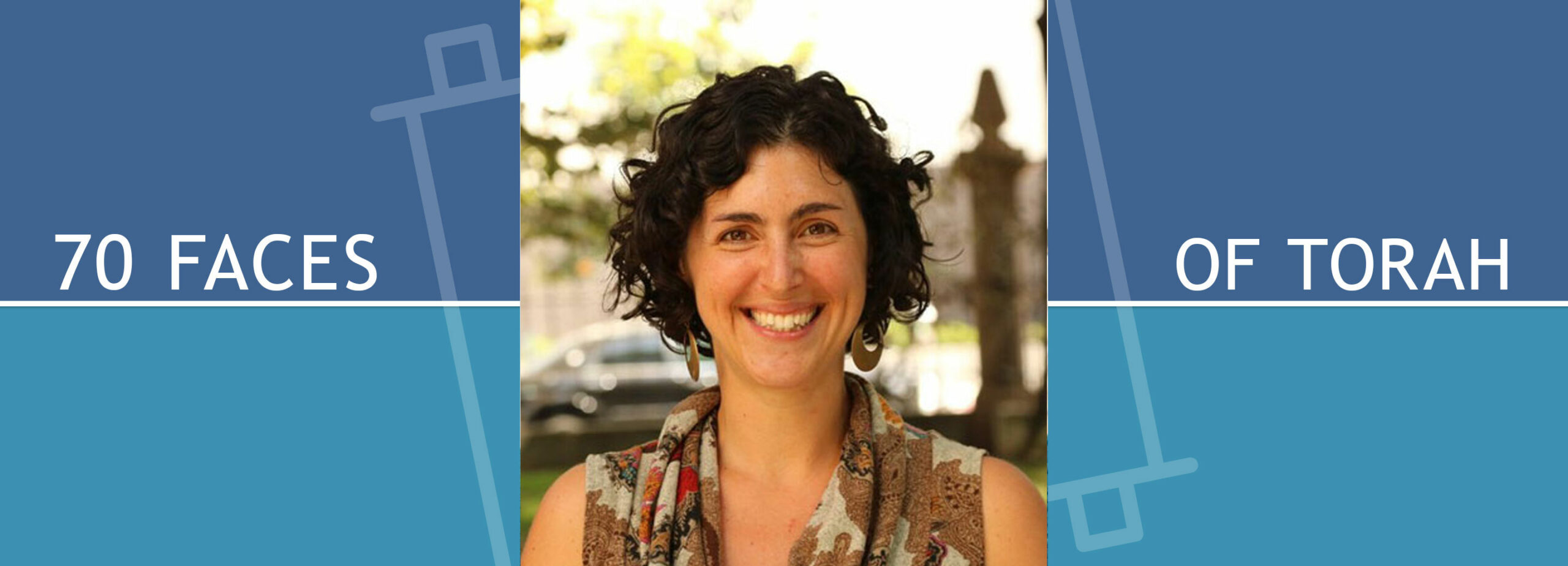Numbers The Blossoming of the Beloved Community

Parshat Korach, Numbers 16:1-18:32
As this week’s parsha begins, Korach—along with 250 chieftains of the community—criticizes Moses and Aaron for devising a system of religious practice in which only a select few are designated for Divine service. Where there was once an unmediated relationship, there are now layers—both physical and metaphorical—between the majority of the people and God. “Kol ha edah kula kedoshim u’bitocham Adonai—All of the community is holy, all of them, and the Divine is within/among them,” Korach and his followers assert. “Why then do you raise yourselves above the community?”
Just wait until tomorrow, Moses answers, and you’ll see whom God chooses in holiness. And see they do. The next day, having been challenged to a ritual duel by Moses, Korach and his followers offer incense to God. In response, the ground splits open and the earth consumes Korach and his followers alive. Moses’s authority is validated, Korach’s question is obliterated, and the existing power structures are reinforced. The people are left stunned and fearful; later in the parasha, they exclaim, “Everyone who approaches the mishkan, the tabernacle, dies – have we been consigned to die?!”
Reading this parasha, I’m struck by the fact that it was only a few weeks ago that we relived the pinnacle moment of our collective narrative: revelation. Transported back to the foot of the mountain, we stood together – parents and children, learned and novice, rich and poor and everyone in between. There we received Torah anew. Nature mirrored our souls. The air sparked electric, our ears full of lightening, our eyes full of thunder. Our senses, everything, flipped inside out. We held each other close as the ground beneath us shook. The trumpet’s blasts echoed in the trees and then, silence. Something new was born.
Revelation couldn’t have happened without each one of us. “Said R. Levi: [at Sinai] The Holy One appeared like a picture which is visible from all angles, a thousand people may gaze on it and it gazes on all of them” (Yalkut Shimoni: Yitro 286). Our tradition teaches that each of us has a unique vantage point on the Divine. No one has a singular claim to perceiving holiness, and it is only when all of our perspectives are combined in their beautiful diversity that the Divine image is complete.
Divinity isn’t just something we perceive from a distance. It comes to reside with us when we create the proper conditions. “V’asu li mikdash v’shanchanti bitocham”—in Exodus, God instructs us to build a sanctuary so that the Divine presence may dwell in our midst. Or, more radically, as Rabbi Menachem Mendel of Kotzk interprets this verse, based on the literal meaning of the Hebrew word bitocham—so that the Divine may dwell within us. This, according to Menachem Mendel, teaches us that each person must build the sanctuary in his or her own heart; then God will dwell within them.
Each of these commentaries elevates the importance of the individual, but the individual grounded in community. At Sinai, each of us received revelation uniquely, but none of us received it alone. The Divine word came forth when all of us were gathered together. God spoke “face to face” with each of us in the presence of all of us. We each witnessed one another receiving, and we understood that we weren’t the only one able to hear God’s word. Similarly, the metaphorical mishkan we each create within our own heart mirrors the physical mishkan we build together in the public square. Our individual, internal sacred center is meant to connect us not only to God, but to the gifts, artistry, and spiritual longings of those with whom we share community.
In Exodus, God promises to dwell bitocham when we create the right conditions. Korach, using the same word, opens the possibility for us to wrestle with what it actually means for all of us to be holy, and how this understanding affects the type of community we create. His actions might be understood as an attempt to provoke the community and its leadership to engage in the necessary struggle for those conditions to become manifest— where challenge can be held as sacred and the sacred can withstand being challenged.
Korach recedes into the depths, with “good riddance” from the majority of rabbinic commentators who see him as a mutinous threat. But with Korach’s demise, we also lose a kernel of change that, if we were to wrestle with it, might bring us closer to the individual and communal conditions in which we can allow in the Divine more fully. That kernel remains within the earth, hovering just below and sometimes rising to the surface, as we struggle and fail and come ever closer to creating the conditions for the blossoming of the beloved community – one in which we recognize the holiness within each of us and we are all cherished as part of a sacred collective.
Rabbi Adina Allen is an entrepreneur working at the intersection of Judaism, embodiment, and creativity. She was ordained at Hebrew College’s Rabbinical School. She is co-founder and Creative Director of The Jewish Studio Project, a new organization that helps to empower Jewish adults to activate their creativity and claim their role as inheritors and innovators of the Jewish tradition.

